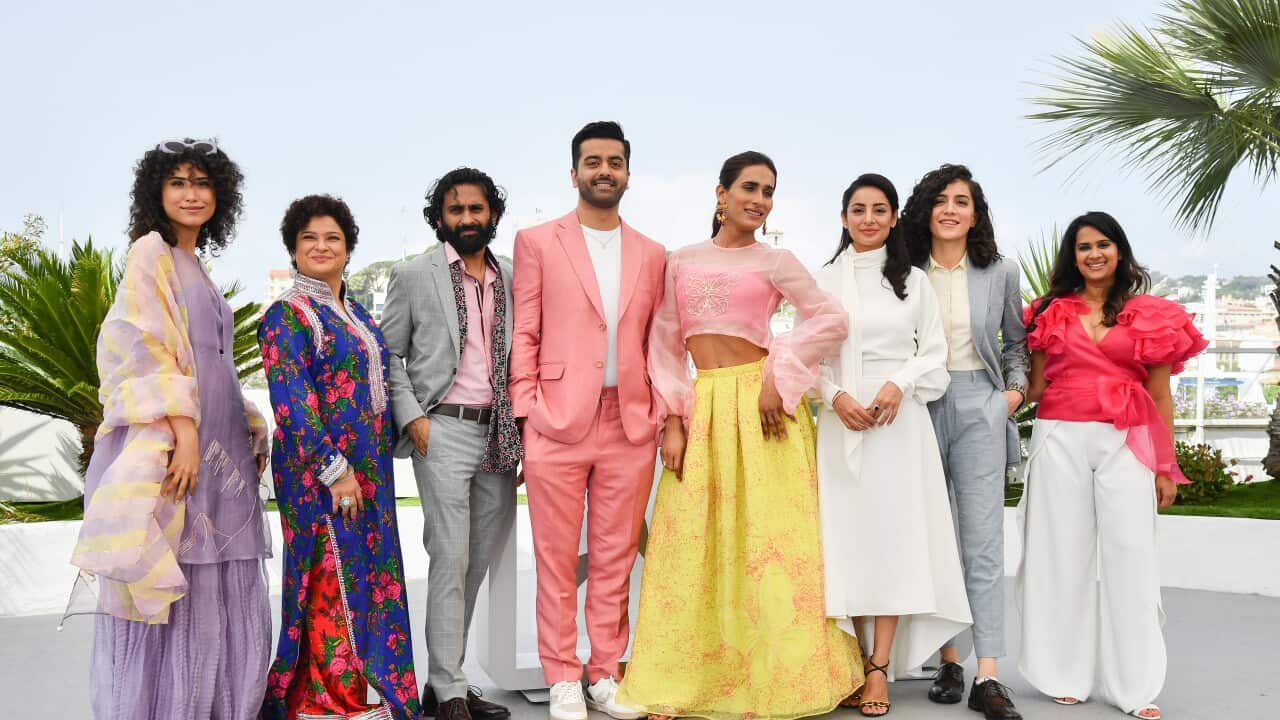A Pakistani movie featuring a daring portrait of a transgender dancer in the Muslim country on Friday won the prestigious Cannes 'Queer Palm' prize for best LGBTIQ+, "queer" or feminist-themed movie.
'Joyland' by director Saim Sadiq, a tale of sexual revolution, tells the story of the youngest son in a patriarchal family who is expected to produce a baby boy with his wife.
He instead joins an erotic dance theatre and falls for the troupe's director, a trans woman.
'Joyland' is the first-ever Pakistani competitive entry at the Cannes film festival and on Friday also won the Jury Prize in the 'Un Certain Regard' competition, a segment focusing on young, innovative cinema talent.
"It's a very powerful film, that represents everything that we stand for," Queer Palm jury head, French director Catherine Corsini, told AFP.
Cannes film festival accused of 'cold-shouldering the Queer Palm'
Ms Corsini herself took the Queer Palm last year with "La Fracture", which features a lesbian couple's relationship against the backdrop of the "Yellow Vest" movement in France.
"'Joyland' will echo across the world," Ms Corsini said. "It has strong characters who are both complex and real. Nothing is distorted. We were blown away by this film."
The Queer Palm has been won by big-name directors in the past and attracted top talent to its juries, but has no official place at the world's top film festival.
Awards for films with lesbian, gay, bisexual, transgender and queer content are already an integral part of other major movie gatherings, including Berlin which has handed out its "Teddy Award" since 1987, and made it part of its official programme.
Not so at Cannes, where the festival's leadership will not even allow the Queer Palm - which has been running for a decade - to set up shop in its main building, the Palais du Festival.
"It makes me sad that the festival is still cold-shouldering the Queer Palm," Ms Corsini said.
Past winners of the prize, created in 2010 by critic Franck Finance-Madureira, include Todd Haynes for "Carol" and Xavier Dolan for "Laurence Anyways".
'Joyland' beat off several other strong entries, including "Close" by Belgian director Lukas Dhont and "Tchaikovsky's Wife" by Kirill Serebrennikov, both hot contenders for the Cannes Festival's top Palme d'Or award which will be announced on Saturday.
'Joyland' left Cannes audiences slack-jawed and admiring and got a standing ovation from the opening night's crowd.
Trans rights in Pakistan
Part of the surprise stemmed from the discovery by many at Cannes that Pakistan is one the first nations to have given legal protection against discrimination to transgender people.
In 2009, Pakistan legally recognised a third sex, and in 2018 the first transgender passport was issued.
"Pakistan is very schizophrenic, almost bipolar," director Saim Sadiq told AFP in an interview.
"You get, of course, prejudice and some violence against a particular community on the one hand, but you also get this very progressive law which basically allows everyone to identify their own gender, and also identifies a third gender," he said.
For its short film award, the "Queer Palm" jury picked 'Will You Look At Me' by Chinese director Shuli Huang.
The diary-type film, set in the film-maker's hometown, shows a traditional society in which parents care more about their reputation than about their gay children's happiness.

